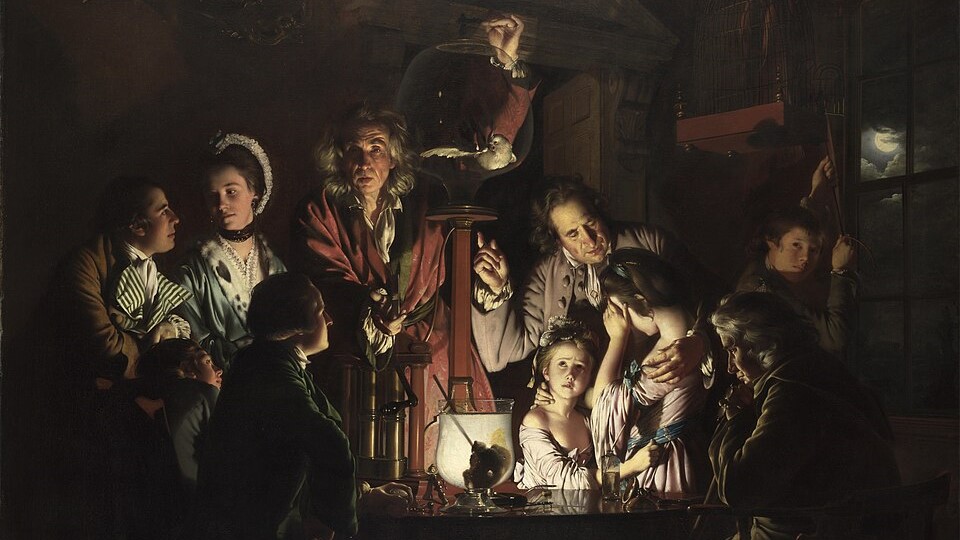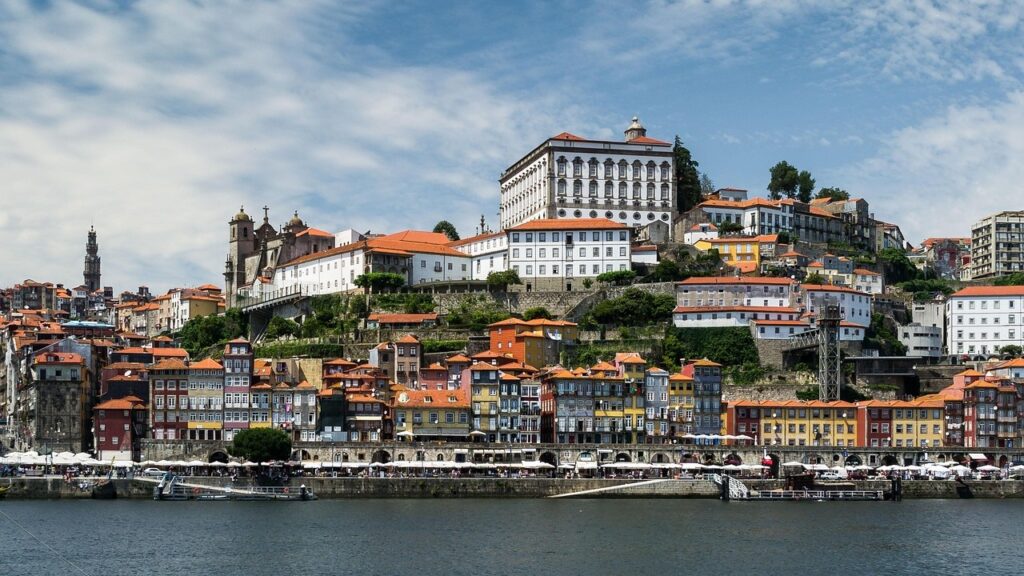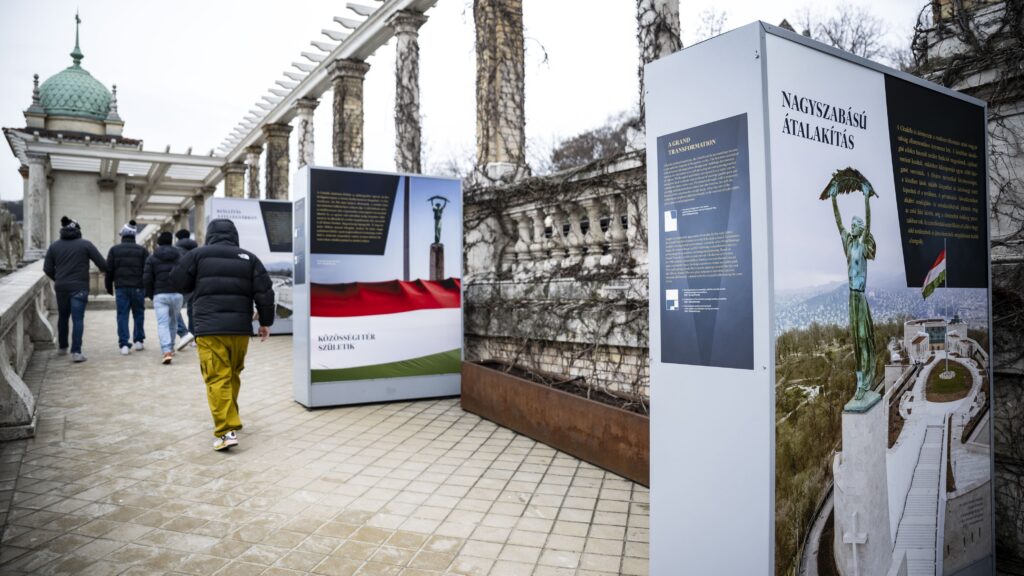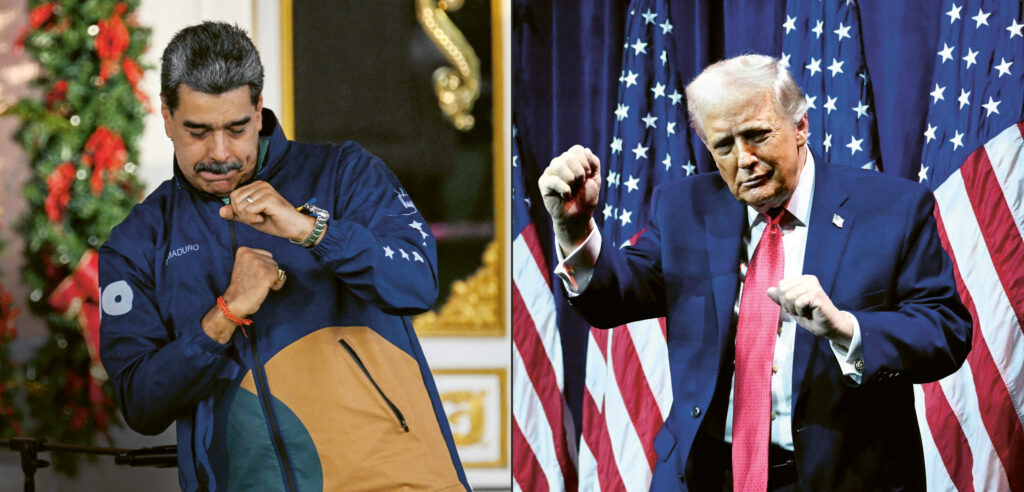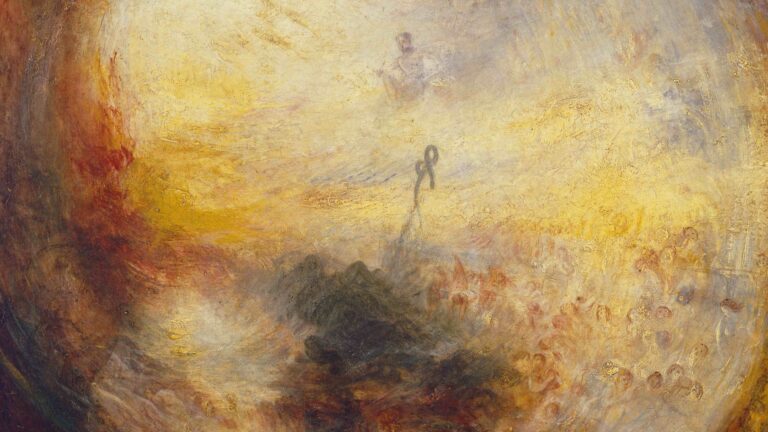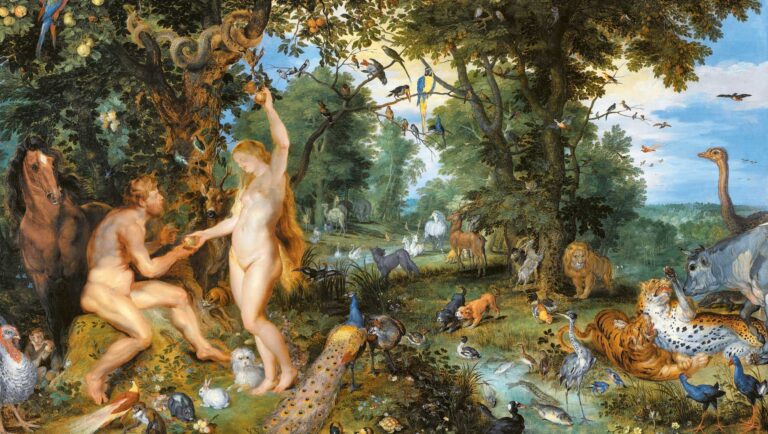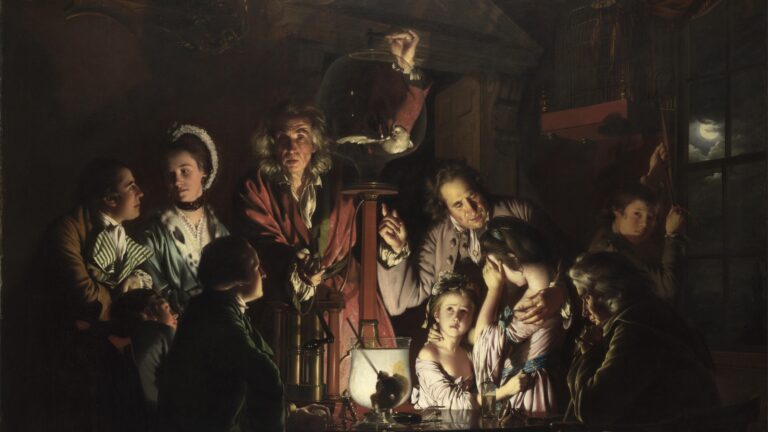Read the first part of the following article here.
The Ideological Root of the Crisis — The Myth of Progress
For the modern individual, it feels almost natural to envision history as a linear, upwardly progressing process. This perspective, however, is by no means timeless; it is, in fact, a relatively recent and specifically Western construct.
Most forms of the pre-modern worldview—from Greco-Roman antiquity to Indian civilization—saw historical time as cyclical: a repeating circle of birth, flourishing, decline, and rebirth. Within this framework, the modern Western ‘post-Christian’ concept of ‘progress’ was naturally incomprehensible. As Berdyaev emphasizes in several places, history in pre-modern societies had no true telos—unless it was to preserve and extend the imperial idea represented by Rome or China against the threatening darkness and ‘dark waters’ of the surrounding world.[1] Furthermore, their explicit or implicit ‘philosophy of history’ was not aimed at achieving an unknown future, but at preserving or restoring the ideals of a mythical Golden Age.[2] In the processes of history, ancient cultures mostly saw an eternal struggle between the forces of light and darkness, culture and barbarism, order and chaos: this is what poets, chroniclers, and theologians depicted when they dealt with the phenomenon of history.
The linear view of history, with a beginning and an end, appeared in Western thought only with the advent of Christianity. Christian salvation history conceived of the world as a singular and unrepeatable divine drama, unfolding from Creation to the Last Judgment. This conception truly ‘discovered’ the unidirectionality of history, but the engine and goal of the process remained transcendent throughout. In the Christian Middle Ages, a historical telos—the ‘Kingdom of God’—already existed, but within history itself, they saw the symbols of Salvation History: a dialogue between God and man, a fateful unfolding that always points beyond itself toward a transcendent reality.[3] The meaning of history was not given by human action alone, but by God’s plan. Moreover, with the doctrine of the Fall, Christianity encoded a deep anthropological ‘pessimism’ (or realism?) into the system: human nature is fallible, incapable of good on its own, and thus history in itself is not a stage for development, but for the struggle between sin and divine grace. Man cannot perfect himself; he can only hope for redemption.
The moment of birth for the modern myth of progress is when Western thought retained the linear time-scheme of Christianity but radically reinterpreted its content. This ‘humanist turn’ was essentially a process of secularization, during which divine providence was replaced by human reason, the dogma of Original Sin by a belief in the perfectibility of man, and the hope of a heavenly kingdom by the programme to realize an earthly paradise. From the 12th-century mystic thinker Gioacchino da Fiore—who divided history into the ages of the Father, the Son, and the coming Holy Spirit—to Francis Bacon’s 17th-century New Atlantis, which envisioned a technological salvation, the new paradigm became increasingly clear: the purpose of history was no longer otherworldly salvation, but the perfection of life on Earth.
This new, now purely worldly and anthropocentric idea of progress became a comprehensive political programme during the Age of Enlightenment. If human reason is capable of understanding and shaping the world, and if human nature is fundamentally good—merely corrupted by ignorance and outdated institutions—then history is nothing more than the battle of reason against superstition. In this struggle, every element of the traditional order—the Church, the monarchy, the aristocracy, tradition itself—necessarily became a dark remnant of the past, an obstacle to progress and freedom to be overcome. Revolution was no longer just a political possibility, but a historical duty.
In the Age of Enlightenment, this new, human-centred view of history crystallized into a comprehensive political programme. The purest formulation of this programme can perhaps be found in the works of Kant and the Marquis de Condorcet, one of the spiritual fathers of the French Revolution. In his famous essay What is Enlightenment?, Kant provided the motto of the age: ‘Sapere aude! Dare to use your own understanding!’ This call was a declaration of war on all forms of external, traditional authority—be it ecclesiastical dogma, a sovereign’s command, or the mere force of tradition. According to Kant, the Enlightenment represents humanity’s emergence from its ‘self-incurred immaturity’, a state where individuals entrust themselves to the guidance of others. The goal is a rational society where every law and institution must be brought before the ‘tribunal of universal reason’.
While Kant laid the philosophical foundations, Condorcet, in his Sketch for a Historical Picture of the Progress of the Human Mind—with no small measure of ‘anthropological optimism’, and numerous ‘generous’ value judgments and even historical distortions—wrote the historical gospel of progress. The Marquis divided world history into ten stages of the human spirit, each more perfect than the last, culminating in a future tenth stage where, ‘with the help of science and reason’, humanity would eliminate disease, inequality between nations and sexes, and achieve an almost unimaginable degree of physical and moral perfection.[4]
‘Progress is relentlessly unstoppable, and everything that originates from the past…is merely a relic of a bygone, barbaric era’
In Condorcet’s vision, progress is relentlessly unstoppable, and everything that originates from the past—the authority of thrones and altars—is merely a relic of a bygone, barbaric era, condemned to be forgotten. (The pathos and grotesque nature of this vision are heightened by the fact that Condorcet penned this work of hope for the future while hiding from the Jacobin dictatorship of the French Revolution, awaiting his own death.) The future perfect society rests on three main pillars:
- The abolition of inequality: Progress will eliminate inequality between nations (as free peoples bring knowledge to those languishing under tyranny), between classes (through social insurance and education), and between the sexes.
- The real perfectibility of man (la perfectibilité réelle de l’homme): With the advancement of science and medicine, the length of human life can theoretically be extended indefinitely. (This very vision echoes in Harari’s transhumanism.) Although he did not promise immortality, Condorcet believed there were no ultimate biological limits to human life. In parallel, education and rational institutions would bring about the moral and intellectual perfection of man.
- The reign of knowledge: Thanks to the printing press, the spread of knowledge is unstoppable, and errors and superstitions will gradually disappear. Society will be governed by the rational insights of scientists and experts, rather than by tradition or religious dogma.
The figure and work of Condorcet are crucial for our essay, because he—perhaps more than any other ‘enlightened’ philosopher—represents in its purest form the modern, secular, ‘humanist’ utopia that aimed to demolish traditional forms of authority. It is not in the thought of the cynical Voltaire, who leaned toward absolute monarchy, or the contradictory Rousseau, who also allows for a peculiar conservative reading,[5] but in the Marquis de Condorcet that the belief culminates: that humanity needs no external, transcendent guidance, because by the power of its own reason, it can overcome all limitations—tyranny, disease, and even mortality—to create a heaven on Earth.[6]
Here, the modern transformation of the concept of authority can be grasped: Condorcet’s utopia replaces concrete, historical, and transcendent-based authority with an abstract, future-oriented, science-based expert power—one which no longer demands reverence, but merely rational assent.
The Great Critics of Progress
If human reason is capable of knowing and shaping the world, and if human nature is fundamentally good—merely corrupted by ignorance and outdated institutions—then history is nothing more than the battle of reason against superstition. In this struggle, every element of the traditional order—the Church, the monarchy, the aristocracy, tradition itself—necessarily became a dark remnant of the past, an obstacle to progress and freedom to be overcome.
However, before examining the 20th century’s bitter confrontation with this optimistic programme, we must first introduce the role of Nietzsche—who perhaps struck the deepest and most enduring cracks in the seemingly solid edifice of the idea of progress. He not only criticized but outright mocked the democratic, socialist, and liberal movements of his time, seeing in them the symptoms of a deeper problem.
Nietzsche’s famous declaration that ‘God is dead’ is less a triumphant atheist statement of fact, and more a profound diagnosis of an impending metaphysical catastrophe: with the so-called Enlightenment, Western civilization lost the Platonic–Christian metaphysical anchor that had grounded all its values, morals, and authority for two thousand years.
The concept of ‘God’ here does not simply refer to the Christian image of God, but serves as a symbol for the transcendent world that guarantees truth and order—a world which, according to Nietzsche, has irremediably collapsed. The inevitable consequence of this collapse is nihilism: the state in which ‘the highest values devalue themselves’, and all higher purpose and meaning become empty.[7]
Nietzsche’s genius lay in recognizing that the modern idea of ‘progress’ is not the antidote to nihilism, but its most sophisticated and deceitful form. For him, the slogans of democracy, equality, human rights, and social justice are merely the last, secularized remnants of Christian slave morality.
It must be noted that Nietzsche’s assessment of Christianity was, in fact, formed through a distorted image of contemporary Christianity, which he then projected back onto the whole; his sweeping condemnations of ‘Christianity’ in general can be questioned on several points.
It is hardly fitting to call it slave morality when, in the early period of Christianity, believers often accepted persecution and death for their faith. It is unjust to consider the heroic transcendence of the Christian knightly orders over a merely earthly, ‘all too human’ life as slave morality—and it is even less applicable to the conduct of great Christian mystics like Meister Eckhart, who, speaking of the ‘birth of Christ in the soul’, preached that man must overcome himself.
Of course, none of this diminishes Nietzsche’s critique regarding the contemporary state of Christianity, which—especially in Protestant states—scarcely served any transcendent purpose in the sense of a positive self-overcoming. As an institution, it functioned much more as a ‘civil religion’ in the Kierkegaardian sense, mostly serving as an accessory to the enframing of modern man.
These pale, bloodless ideals—according to Nietzsche—no longer possess divine authority, yet they still attempt to impose the morality of the weak and the mediocre upon the excellent. ‘Progress’ is, in reality, a purposeless advance toward a state that Nietzsche, in Zarathustra, called the age of the ‘last man’ (der letzte Mensch).
‘What is love? What is creation? What is longing? What is a star?—thus asks the last man, and he blinks’
The last man is the final, contemptible product of progression: a comfort-loving, risk-averse, happiness-chasing being, no longer capable of setting great goals or making sacrifices, seeking only the small pleasures of daily comfort and security. As Zarathustra says: ‘What is love? What is creation? What is longing? What is a star?—thus asks the last man, and he blinks.’
The modern faith in progress and equality is, therefore, nothing more than the revolt of the ‘herd-man’ (Herdenmensch) against everything that is noble, excellent, and hierarchical. Nietzsche’s programme, then, is not to fix progress, but the transvaluation of all values (Umwertung aller Werte): the complete rejection of Christian-democratic slave morality and the creation of a new, life-affirming master morality based on strength and excellence.
This is the task that awaits the Übermensch—the overman who is capable of creating new values in the desert of nihilism. Nietzsche was the one who predicted that, after the death of God, the place of authority would be taken by sheer power—the struggle of wills—and his diagnosis provides the true context for the later critics of the 20th century. Heidegger’s forgetting of Being, the self-destruction of instrumental reason described by Adorno and Horkheimer, Arendt’s banality of evil, and Foucault’s biopolitics are all different aspects of the nihilistic, technological world order whose advent Nietzsche foresaw.
After the cataclysms of the 20th century—the world wars, totalitarian regimes, and the Holocaust—the unwavering optimism of the Enlightenment faced another profound critique. One of the sharpest attacks surprisingly came from the left: from the thinkers of the Frankfurt School.
In their work Dialectic of Enlightenment, Theodor W Adorno and Max Horkheimer argued that the Enlightenment did not simply fail, but was doomed from the start, because it carried the seeds of destruction within itself from the very beginning. Their thesis is that the main goal of the Enlightenment was to free humanity from myths and to gain domination over nature with the help of a cold, calculative, instrumental reason (instrumentelle Vernunft).
This reason, however, is not directed at the deeper meaning and purpose of things, but merely at finding the most effective means. They argue that myth and enlightenment actually spring from the same root: both strive for domination over a fearsome, unknown nature. The magician’s ritual and the scientist’s formula are manifestations of the same will to power.
This logic of domination, however, necessarily turned against itself: the subjugation of external nature required the repression of internal nature—of human instincts and emotions. The place of the oppressed external nature was thus taken by the oppressed, ‘alienated’ human being.
Reason, which was supposed to be the instrument of freedom, became in modernity the primary tool of total domination and socio-technological control. This process culminates in the ‘culture industry’ (Kulturindustrie), where mass culture (films, music) no longer serves liberation, but the deception (Massenbetrug) and pacification of the masses.
Their famous thesis that ‘myth is already enlightenment, and enlightenment reverts to mythology’ condenses the self-destructive logic of the modern age into a single sentence. They argue that myth (eg, magic) and enlightenment (eg, science) spring from the same root: both are man’s attempt to dominate a fearsome nature.
However, enlightenment uses a cold, calculative, instrumental reason that reduces everything to mere means and material. This logic of domination, after subjugating external nature, inevitably turns back against man himself—turning society and individuals into components of a totally administered, efficient machine.
Thus, the Enlightenment, which promised freedom from the old myths, ultimately creates a new, far more powerful and inhuman myth: the myth of total, rational control—whose logical conclusion was the industrialized barbarism of the 20th century.[8]
‘Myth and enlightenment spring from the same root: both are man’s attempt to dominate a fearsome nature’
Another, more nuanced—but perhaps even more unsettling—critique was formulated by Michel Foucault. The undeniable genius of Foucault lies in his demonstration that in modernity, it was not simply the holder of power who changed, but the very nature of power itself that was transformed.
The spectacular, prohibitive, and external authority (auctoritas) of the pre-modern sovereign was replaced by the hidden, productive, and soul-penetrating administrative power (potestas) of the disciplinary society. He did not simply reject the Enlightenment, but sought to uncover the hidden mechanisms of power within it.
Foucault radically redefined the concept of power: for him, power (pouvoir) is not merely a top-down, prohibitive, and repressive force, but a much more diffuse, invisible, and ‘productive’ network that creates and shapes the individual through institutions, knowledge (savoir), and discourses.
According to Foucault, the 18th century—the age of the ‘invention of liberties’—was also the beginning of the age of discipline. The humanism of the Enlightenment, while liberating the individual from old, traditional bonds (guild, church, feudal ties), immediately integrated him into the new, much more effective institutions of the disciplinary society: the barracks, the school, the factory, the hospital, and the prison.
These institutions, in the name of ‘humanity’ and ‘rationality’, introduced a new, meticulous technology of power aimed at creating ‘docile bodies’. This process is most sharply symbolized by Jeremy Bentham’s prison design, the Panopticon: from a central tower, every cell can be observed, but the inmates never know if they are being watched at any given moment.
This possibility of invisible yet constant surveillance forces the inmates to internalize discipline and become their own guards. This, for Foucault, is the archetype of modern power.
‘One might say that the ancient right to take life or let live was replaced by a power to foster life or disallow it to the point of death. This is perhaps what explains the disqualification of death, which marks the recent wane of the rituals that accompanied it…If one can apply the term bio-history to the pressures through which the movements of life and the processes of history interfere with one another, one would have to speak of bio-power to designate what brought life and its mechanisms into the realm of explicit calculations and made knowledge-power an agent of transformation of human life…For the first time in history, no doubt, biological existence was reflected in political existence…The setting up, in the course of the classical age, of this great bipolar technology—anatomic and biological, individualizing and specifying, directed toward the performances of the body and relayed by the processes of life—characterized a power whose highest function was perhaps no longer to kill, but to invest life through and through.’[9]
In his later work, Foucault elevated this idea to the level of biopolitics—a concept that has become increasingly relevant in the current world, especially since the COVID pandemic. According to Foucault, the power of the modern state is no longer directed merely at disciplining individual bodies, but at managing the life processes of the entire population: regulating birth rates, public health, and life expectancy. The power of the old sovereign consisted in ‘letting live and making die’; modern biopolitical power ‘makes live and lets die’.
It is a pastoral power that cares for its flock—but, in the process, administers and optimizes each of its members as if they were nothing more than a standing reserve in Heidegger’s Enframing.
From this perspective, the promise of ‘freedom’ provided by the modern state and society was, in fact, a cover story for the spread of a new, far more pervasive and harder-to-question technology of power.
In this respect, Foucault is in deep agreement with Tocqueville. Writing more than a century before Foucault, and examining the aristocracy of the French Ancien Régime, Tocqueville pointed out that the nobility, for all its faults, once served as an indispensable intermediary body (corps intermédiaires) between royal power and the people. It prevented the total centralization of power and maintained an ‘aristocratic spirit’ of freedom, honour, and self-governance within the monarchy.
With the inevitable rise of democracy, however, these intermediary bodies disappear. Society becomes an atomized mass of equal but isolated individuals, standing defenceless before an omnipotent, centralized, and tutelary state power. This is the danger of the ‘tyranny of the majority’ and of ‘soft despotism’: a condition where people surrender their freedom in exchange for comfort and security.
The spectacular yet external rule of traditional authority was replaced by the invisible, soul-penetrating, disciplinary force of modern power.
[1] Surprisingly, the ‘imperial’ worldview is not unique to large, settled civilizations. Central and Inner Asian Tengrism emphasizes the establishment of the principle of ‘balance’ just as much as Taoism. According to Chinese sources, the Asian Hunnic ruler (Shan-yü, Tan-hu) descended from the ‘Dragon Clan’ (Luan-ti). Here, the dragon—unlike the Western dragon, which embodied the ‘primordial chaos’ beyond the empire’s borders—was a primary symbol of the ruler’s divine right and the legitimacy of both the Hunnic Tan-hu and the Chinese Emperor (Ti): it was a pure, political, and sacred symbol of order, stability, and imperial power.
[2] It is no coincidence that Hobbes, one of the most famous formulators of the modern concept of the state, detached from transcendence, chose this figure as the title character for his famous book. There is a peculiar parallel, as Albert C Labriola points out: Leviathan can also be seen as an embodiment of the devil, who threatens God’s creatures by threatening to devour them, while also menacing God’s creation, the world itself, by stirring up the ‘waters of chaos’ around it. (Albert C Labriola, ‘The Medieval View of History in Paradise Lost’, in Milton and the Middle Ages, ed John Mulryan, Lewisburg, Bucknell University Press, 1982, pp. 115–132.)
[3] In this sense, the ‘factual character’ of history, or its ‘objective truth’ in terms of economic and political facts, is of course less prominent in the pre-modern conception of history. As Spengler, who heavily relied on the ancient idea of fate (Das Schicksal), later formulated in The Decline of the West, the opposition between fate and the ‘causal principle’ forms the fundamental distinction between the rational-rationalistic view of history and his own literary-metaphysical perspective.
[4] The contemporary reader might be surprised to find that these very unquestionable ‘promises’ and ‘achievements’ are echoed in Harari’s Sapiens—albeit somewhat distorted and adapted to the author’s anxious, pseudo-sceptical perspective: ‘In the last few decades we have at last made some real progress as far as the human condition is concerned, with the reduction of famine, plague and war. Yet the situation of other animals is deteriorating more rapidly than ever before, and the improvement in the lot of humanity is too recent and fragile to be certain of.’ (Yuval Noah Harari, Sapiens: A Brief History of Humankind, 2014, p. 552.)
[5] In this regard, see especially: Márton Békés, Rousseau és a nemliberális demokrácia. Kommentár a társadalmi szerződéshez (Rousseau and Illiberal Democracy. A Commentary on the Social Contract).
[6] On Condorcet’s unwavering faith in science and rational social engineering, and his attempt to create a kind of ‘social mathematics’ to guide progress, see the classic monograph on the subject: Keith Michael Baker, Condorcet: From Natural Philosophy to Social Mathematics, University of Chicago Press, 1975. Additionally, for Jonathan Israel’s place within the debates of the Enlightenment, see: Jonathan I Israel, The Enlightenment that Failed: Ideas, Revolution, and Democratic Repudiation, 1789–1830, Oxford University Press, 2019.
[7] Nietzsche first speaks of the ‘death of God’ in paragraph 125 of The Gay Science. The death of God is announced by a madman who lights a lantern in broad daylight to search for God: ‘“Where is God?” he cried; “I will tell you. We have killed him—you and I. All of us are his murderers. But how did we do this? How could we drink up the sea? Who gave us the sponge to wipe away the entire horizon? What were we doing when we unchained this earth from its sun? Whither is it moving now? Whither are we moving? Away from all suns? Are we not plunging continually? Backwards, sideward, forward, in all directions? Is there still any up or down? Are we not straying as through an infinite nothing? Do we not feel the breath of empty space? Has it not become colder? Isn’t night continually closing in on us? Do we not need to light lanterns in the morning?”’ (Friedrich Nietzsche, The Gay Science, trans. Walter Kaufmann, Vintage Books, 1974.)
[8] For a detailed presentation of the history of the Frankfurt School, its key thinkers, and the main theses of critical theory (including the concepts of instrumental reason and the culture industry), see: Martin Jay, The Dialectical Imagination: A History of the Frankfurt School and the Institute of Social Research, 1923–1950, University of California Press, 1973; new edition, 1996.
[9] Michel Foucault, The History of Sexuality, Vol 1: An Introduction, trans. Robert Hurley, Pantheon Books, 1978, pp. 138–143.
Related articles:

